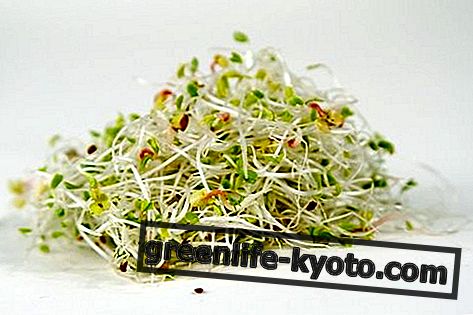
We speak of colitis when the last part of the intestine, that is the part called the colon, is inflamed and this leads to abdominal pain, problems in defecation and alteration of intestinal motility .
Colitis is also commonly called colon or irritable bowel syndrome and is noted with pain in the lower abdomen, swelling in the abdomen and especially malfunction of intestinal motility that leads to episodes of diarrhea or constipation even sometimes present so alternating. It is called Crohn's disease when the underlying cause is of autoimmune origin .
Many people in Italy also suffer from this disorder and in particular women aged 20 to 40 are more prone to this malfunctioning organ .
In general, however, colitis is increasingly on the increase due to the stressful life we are experiencing, to a sedentary lifestyle and also because we have an unbalanced diet poor in fiber and vegetables.
Colitis is therefore an inflammatory disorder of the colon that can be acute as in the case of bacteria or virus attack but usually manifests itself for other causes such as stress, sedentary life, wrong nutrition, etc.
This last type begins with occasional episodes and then becomes chronic and even gives serious problems of anemia, weight loss and really extreme energy. To help the healing of this inflammation of the colon we can make use of many natural remedies. Let's get to know them ...
Mucilages to soothe
The first help from the world of herbs that we can receive are plants such as mallow, altea and flax seeds that contain many mucilages .
These substances are very important for our body because they help keep the mucosa of the entire gastrointestinal tract hydrated and healthy . The mucilages cover the mucous membrane with a protective film and even help healing and healing of any micro-lesions in the tissues. In particular, the flowers and leaves of malva sylvestris have anti-inflammatory, emollient and balancing properties of intestinal motility.
Calm and stretch the abdomen
Other plants indicated for colitis are lemon balm and chamomile thanks to their active ingredients with calming, relaxing and even anti-inflammatory properties. In particular, these soothing plants are useful for colitis that originates from nervousness and restlessness .
Whether in the form of an herbal tea or a food supplement or mother tincture, chamomile and lemon balm are excellent for helping the irritated colon to heal. These plants also have an excellent antispasmodic property that is able to calm and relax cramps, spasms and other muscular tensions that occur in the area of the abdomen.
Finally, being rich in essential oils, mallow and chamomile - but also fennel and mint - are indicated against intestinal gases and possess excellent carminative properties that are truly essential against colitis.
Regularize the intestine
Some plants can bring great relief to bowel disorders (source Sciencedaily): to help in the case of colitis is aloe vera drunk as juice extracted from fresh leaves.
Its properties are mucosal protection and defense against external attacks . Furthermore, aloe acts as a natural anti-inflammatory that also helps to restructure and heal the damaged cellular tissue. Finally , aloe is an immunostimulant and manages to regulate the immune response so much that it allows a better resolution of autoimmune diseases as in the case of Crohn's disease.
Bach flowers for colitis
In the case of colitis even among Bach flowers the Melissa is recommended, which comes to the rescue when we have "stomach ache" and internal torments but which we mask behind an apparent calm.
Also Agrimony is an excellent flower that is recommended in the case of colitis and irritable colon caused by emotional situations in which we are afraid of not being accepted by others.
Feeding for colitis
A correct and balanced diet is the best way to help prevent and even cure colitis, especially chronic and nervous .
All canned, pre-packed foods, rich in preserves and additives must be removed . These food products carry the onset of inflammations in the body and in particular the most incriminated are cold cuts and sausages.
High-temperature cooking and frying should be avoided as well as maximum reduction of fatty foods and red meats . The refined white sugar and therefore the confectionery products are to be avoided because they also aggravate the inflammatory state of the body.
The milk and its derivatives are to be avoided especially in moments of diarrheal discharges because they increase the disorder.
Finally, carbonated drinks, alcohol and nervine drinks such as coffee are to be reduced, as they over-excite the nervous system and make colitis worse, especially the nervous type.
However, all raw or cooked foods of vegetable origin will be released.
Zucchini, carrots, steamed or boiled potatoes are very helpful for colitis because they are rich in mucilage and fiber .
Still whole grains like spelled, barley, rice and buckwheat are recommended. Apples, pears and seasonal fruits will be well-received, but it is better to evaluate fruits such as kiwi, peaches, cherries and berries.













